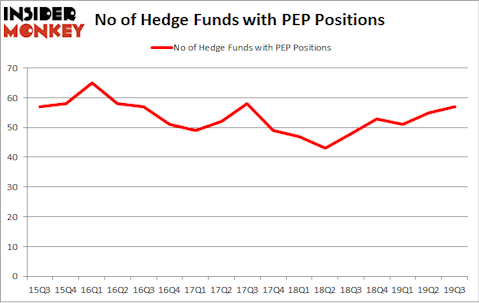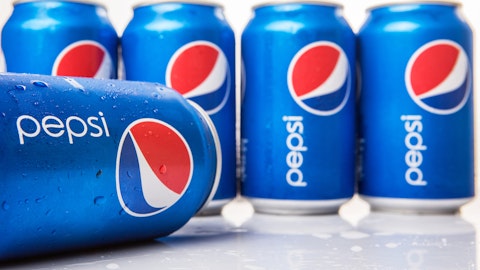Hedge funds are known to underperform the bull markets but that’s not because they are bad at investing. Truth be told, most hedge fund managers and other smaller players within this industry are very smart and skilled investors. Of course, they may also make wrong bets in some instances, but no one knows what the future holds and how market participants will react to the bountiful news that floods in each day. Hedge funds underperform because they are hedged. The Standard and Poor’s 500 Total Return Index ETFs returned 31% through December 23rd. Conversely, hedge funds’ top 20 large-cap stock picks generated a return of 41.1% during the same period. An average long/short hedge fund returned only a fraction of this due to the hedges they implement and the large fees they charge. Our research covering the last 18 years indicates that investors can outperform the market by imitating hedge funds’ consensus stock picks rather than directly investing in hedge funds. That’s why we believe it isn’t a waste of time to check out hedge fund sentiment before you invest in a stock like PepsiCo, Inc. (NASDAQ:PEP).
PepsiCo, Inc. (NASDAQ:PEP) investors should be aware of an increase in hedge fund interest of late. PEP was in 57 hedge funds’ portfolios at the end of September. There were 55 hedge funds in our database with PEP positions at the end of the previous quarter. Our calculations also showed that PEP isn’t among the 30 most popular stocks among hedge funds (click for Q3 rankings and see the video at the end of this article for Q2 rankings).
So, why do we pay attention to hedge fund sentiment before making any investment decisions? Our research has shown that hedge funds’ small-cap stock picks managed to beat the market by double digits annually between 1999 and 2016, but the margin of outperformance has been declining in recent years. Nevertheless, we were still able to identify in advance a select group of hedge fund holdings that outperformed the Russell 2000 ETFs by 40 percentage points since May 2014 (see the details here). We were also able to identify in advance a select group of hedge fund holdings that underperformed the market by 10 percentage points annually between 2006 and 2017. Interestingly the margin of underperformance of these stocks has been increasing in recent years. Investors who are long the market and short these stocks would have returned more than 27% annually between 2015 and 2017. We have been tracking and sharing the list of these stocks since February 2017 in our quarterly newsletter. Even if you aren’t comfortable with shorting stocks, you should at least avoid initiating long positions in stocks that are in our short portfolio.
We leave no stone unturned when looking for the next great investment idea. For example one of the most bullish analysts in America just put his money where his mouth is. He says, “I’m investing more today than I did back in early 2009.” So we check out his pitch. We read hedge fund investor letters and listen to stock pitches at hedge fund conferences. This December, we recommended Adams Energy as a one-way bet based on an under-the-radar fund manager’s investor letter and the stock is still extremely cheap despite already gaining 20 percent. Keeping this in mind let’s take a gander at the recent hedge fund action regarding PepsiCo, Inc. (NASDAQ:PEP).
Hedge fund activity in PepsiCo, Inc. (NASDAQ:PEP)
Heading into the fourth quarter of 2019, a total of 57 of the hedge funds tracked by Insider Monkey were long this stock, a change of 4% from one quarter earlier. Below, you can check out the change in hedge fund sentiment towards PEP over the last 17 quarters. So, let’s review which hedge funds were among the top holders of the stock and which hedge funds were making big moves.
When looking at the institutional investors followed by Insider Monkey, Donald Yacktman’s Yacktman Asset Management has the largest position in PepsiCo, Inc. (NASDAQ:PEP), worth close to $801.3 million, amounting to 9.8% of its total 13F portfolio. The second most bullish fund manager is AQR Capital Management, led by Cliff Asness, holding a $754.7 million position; the fund has 0.9% of its 13F portfolio invested in the stock. Some other members of the smart money that are bullish encompass Renaissance Technologies, David E. Shaw’s D E Shaw and Ric Dillon’s Diamond Hill Capital. In terms of the portfolio weights assigned to each position Yacktman Asset Management allocated the biggest weight to PepsiCo, Inc. (NASDAQ:PEP), around 9.85% of its 13F portfolio. Gabalex Capital is also relatively very bullish on the stock, earmarking 2.96 percent of its 13F equity portfolio to PEP.
Now, key hedge funds have been driving this bullishness. Echo Street Capital Management, managed by Greg Poole, established the most outsized position in PepsiCo, Inc. (NASDAQ:PEP). Echo Street Capital Management had $5.9 million invested in the company at the end of the quarter. Parvinder Thiara’s Athanor Capital also initiated a $1 million position during the quarter. The other funds with brand new PEP positions are David Costen Haley’s HBK Investments, Ben Levine, Andrew Manuel and Stefan Renold’s LMR Partners, and Kahn Brothers.
Let’s also examine hedge fund activity in other stocks – not necessarily in the same industry as PepsiCo, Inc. (NASDAQ:PEP) but similarly valued. We will take a look at Toyota Motor Corporation (NYSE:TM), Anheuser-Busch InBev SA/NV (NYSE:BUD), Oracle Corporation (NYSE:ORCL), and China Mobile Limited (NYSE:CHL). This group of stocks’ market caps are similar to PEP’s market cap.
| Ticker | No of HFs with positions | Total Value of HF Positions (x1000) | Change in HF Position |
|---|---|---|---|
| TM | 11 | 243035 | 3 |
| BUD | 19 | 1800212 | 1 |
| ORCL | 50 | 4360689 | -11 |
| CHL | 12 | 386022 | -1 |
| Average | 23 | 1697490 | -2 |
View table here if you experience formatting issues.
As you can see these stocks had an average of 23 hedge funds with bullish positions and the average amount invested in these stocks was $1697 million. That figure was $3745 million in PEP’s case. Oracle Corporation (NYSE:ORCL) is the most popular stock in this table. On the other hand Toyota Motor Corporation (NYSE:TM) is the least popular one with only 11 bullish hedge fund positions. Compared to these stocks PepsiCo, Inc. (NASDAQ:PEP) is more popular among hedge funds. Our calculations showed that top 20 most popular stocks among hedge funds returned 41.1% in 2019 through December 23rd and outperformed the S&P 500 ETF (SPY) by 10.1 percentage points. Unfortunately PEP wasn’t nearly as popular as these 20 stocks and hedge funds that were betting on PEP were disappointed as the stock returned 27.7% so far in 2019 (through 12/23) and trailed the market. If you are interested in investing in large cap stocks with huge upside potential, you should check out the top 20 most popular stocks among hedge funds as 65 percent of these stocks already outperformed the market in 2019.

Video: Click the image to watch our video about the top 5 most popular hedge fund stocks.
Disclosure: None. This article was originally published at Insider Monkey.





